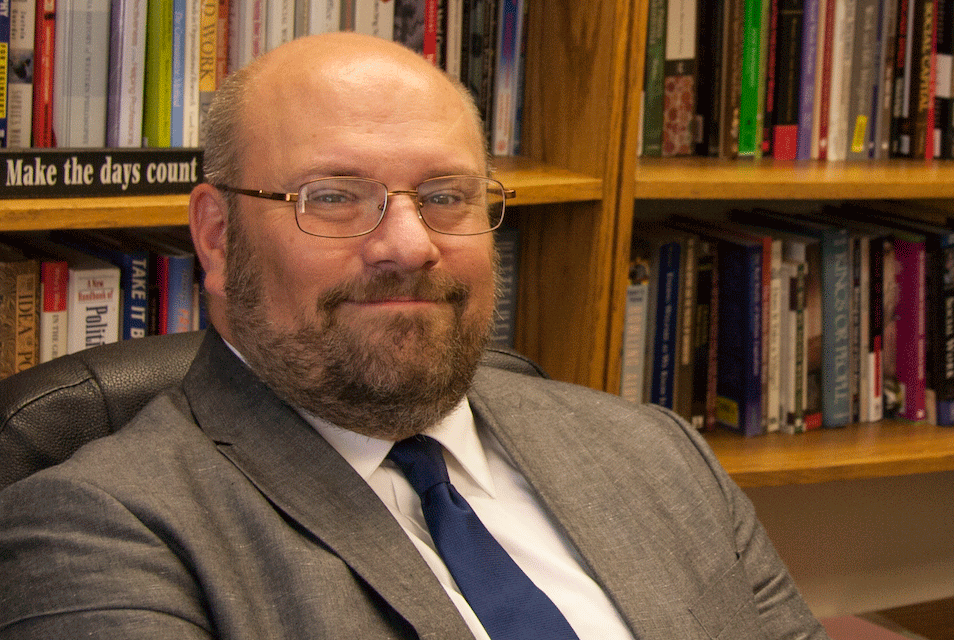The Role of Men in Home Visits: A Missed Opportunity for Social Innovation?
“We are racing against the clock in a good way. Getting fathers involved early is the best chance we have to keep the father involved with the child throughout his life,” said Stephen Edward McMillin, Ph.D., assistant professor of social work, at Saint Louis University’s College for Public Health and Social Justice.
Many women served by home visiting programs are young and still living with their own parents, which welfare programs may require for them to receive benefits. Fathers who are engaged during pregnancy are more likely to still be involved with their children later than fathers who were not involved during pregnancy. But it can be hard for home visiting programs to enroll participants while participants are still pregnant. Home visiting is voluntary and, while some participants refer themselves, other participants may not be referred or enrolled in home visiting until after they give birth.
Social innovations that find creative ways to do outreach to fathers and involve them in home visits can help keep fathers involved in their children’s lives even if they do not remain married or partnered to the child’s mother.
Home visits, or visits from trained individuals (often called “parent educators” or “family support workers” depending on the model of home visiting) to homes with young children, are rapidly expanding. These programs, such as Parents as Teachers and Healthy Families America, are funded in part through federal investments from the Maternal, Infant, and Early Childhood Home Visiting Program to help parents learn nurturing, healthy relationships with their children. The Affordable Care Act greatly expanded enrollment in evidence-based home visiting programs through this federal program, but uncertainty about the future of the Affordable Care Act means that many different home visiting models and programs may now be at risk.
“What [a home visit] looks like is a parent laying on the carpet with their child, observing what she’s looking at… what she’s sensing. Basically, home visitors help parents see how awesome their baby is.”
Stephen Edward McMillin, Ph.D.
“In the past, home visits were a bad thing…a feared thing. But, thanks to these improvements, we are creating this whole new world for children and their parents," he adds.
McMillin is excited about the possibilities for innovation in these programs focused on early childhood from pre-birth to pre-kindergarten because “they pay off exponentially in the long-term.” Best of all, evidence-based improvements to these programs “can be made for pennies on the dollar,” he notes.
Interested in the role fathers play in the home visits, McMillin interviewed 34 program administrators, collected and analyzed their responses. His results, “Program Enhancements to Improve Father Involvement in Early Childhood Home Visitation: Program Administrator Perspectives,” were published by Social Work Research–a top five journal in its field–in December 2016.
He found, among other results, that:
- Most of the home visitors in these programs were female, and program supervisors believed that enhancements to target fathers could be useful.
- Participants were intrigued and eager to receive training on improving father engagement.
- Funding for father enhancement programs was a concern; especially funding that came with “too many strings attached,” such as requiring fathers to have health insurance or limiting funding only to fathers that lived with the mothers.
As a possible solution to these concerns, McMillin suggests testing an “inter-program” of father workers that work across several agencies rather than occupying a full-time employee position at any one of them.
McMillin is part of the recently launched REACH Center, an interdisciplinary research team working to improve the health of children and their families, at Saint Louis University’s College for Public Health and Social Justice.
###
CPHSJ Communications
Published: February 7, 2017
About the College for Public Health and Social Justice
The Saint Louis University College for Public Health and Social Justice is the only academic unit of its kind, studying social, environmental and physical influences that together determine the health and well-being of people and communities. It also is the only accredited school or college of public health among nearly 250 Catholic institutions of higher education in the United States.
Guided by a mission of social justice and focus on finding innovative and collaborative solutions for complex health problems, the College offers nationally recognized programs in public health, social work, health administration, applied behavior analysis, and criminology and criminal justice.
